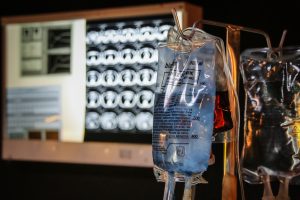 Effectively treating MS requires a comprehensive care approach that maximizes and enhances the brain’s ability to protect and repair itself to promote the quality of life for patients and their families. This means incorporating wellness, exercise, nutrition and stress management, supportive services, and the most progressive medical care possible.
Effectively treating MS requires a comprehensive care approach that maximizes and enhances the brain’s ability to protect and repair itself to promote the quality of life for patients and their families. This means incorporating wellness, exercise, nutrition and stress management, supportive services, and the most progressive medical care possible.
Even as a care provider that does not specialize in MS, you are still likely to come across a patient you suspect of having MS or has been previously diagnosed with MS. It is important for the patient to see a neurologist and schedule an MRI (usually starting with a brain MRI, unless the symptoms are directly related to spinal abnormalities, but often using both) as soon as possible, given that early diagnosis and treatment is the most critical factor in preserving lifelong brain health.
In rural settings, an appointment with a neurologist may not be available for months. In the instance of awaiting an MS diagnosis, it is most important to treat the symptoms of the patient. If awaiting an MRI scan or an in-person visit, a telehealth appointment with a neurologist may be available sooner. We are also available Monday through Friday, 8 a.m. to 5 p.m. for consults via the DocLine at 720-848-2828. While waiting, we encourage you to refer your patient to our website and supportive resources. MS 101 is a virtual, bi-weekly small group class dedicated to helping people navigate their new diagnosis. Taught by our expert MS educators, this class is a great place for patients to begin their MS journey – a formal diagnosis is not required for attendance.
Treatment of MS falls into multiple categories, including treating relapses (see above), treating ongoing symptoms (see above), use of disease modifying therapies (DMTs) that alter the natural history of this life-long condition, and behavioral strategies that focus on wellness.
While there is no single, proven diet for MS patients, avoiding high fat and/or high sugar diets is important. Otherwise, with limited convincing data, the best data supports the use of a Mediterranean diet. Vitamin D deficiency has been associated with a higher risk of developing MS and worse outcomes, it has been difficult to establish that raising a low blood level of Vitamin D results in improved outcomes.

 Drugs that directly impact multiple sclerosis itself are referred to as Disease Modifying Therapies (DMTs) and work to change the course and progression of the disease rather than cure it. The first of these were introduced in 1993, and the list of approved medications has now grown to 10 classes and over 20 medications, including generics and biosimilars. Individualizing treatment according to a patient’s risk profile and lifestyle habits starting with high-efficacy treatments helps prevent irreversible brain and spinal cord damage, thus leading to better outcomes.
Drugs that directly impact multiple sclerosis itself are referred to as Disease Modifying Therapies (DMTs) and work to change the course and progression of the disease rather than cure it. The first of these were introduced in 1993, and the list of approved medications has now grown to 10 classes and over 20 medications, including generics and biosimilars. Individualizing treatment according to a patient’s risk profile and lifestyle habits starting with high-efficacy treatments helps prevent irreversible brain and spinal cord damage, thus leading to better outcomes.